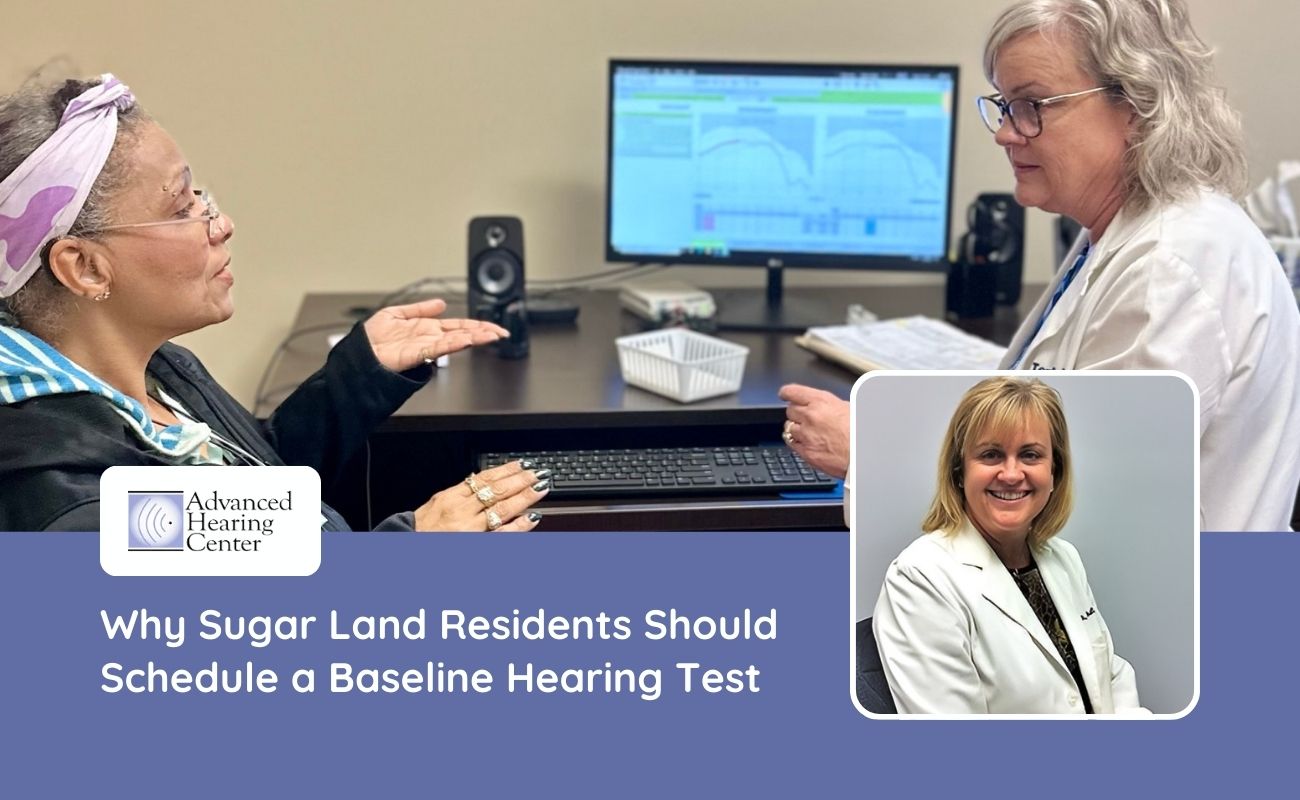
Military service requires courage, dedication, and often personal sacrifice. Among the most common health challenges facing veterans today is hearing loss, which affects millions of former service members across the United States. For Houston-area veterans, understanding the connection between military service and hearing damage is vital for accessing proper care and benefits. The link between military service and hearing damage has been extensively documented through decades of research, revealing the profound impact that service-connected hearing loss has on veterans' daily lives and overall well-being.
Hearing loss ranks as the most prevalent service-connected disability among veterans, affecting approximately 1.3 million veterans who receive disability compensation from the Department of Veterans Affairs. Research indicates that veterans are 30% more likely to experience significant hearing loss compared to non-veterans, with the condition affecting veterans across all age groups, not just older service members.
The Department of Veterans Affairs reports that hearing loss and tinnitus together account for more disability claims than any other condition. In the Houston area, thousands of veterans struggle with service-connected hearing issues, making access to quality audiological care particularly important for our local military community.
Extensive research conducted by the VA Research and Development program has identified noise exposure as the leading cause of hearing loss among service members. Military environments present unique acoustic challenges that civilian workplaces rarely match in intensity or duration.
Combat operations expose service members to explosive blasts, artillery fire, and aircraft engines that can generate sound levels exceeding 140 decibels. To put this in perspective, sounds above 85 decibels can cause permanent hearing damage, while exposure to sounds over 140 decibels can cause immediate and irreversible harm. Military personnel routinely work in environments where these dangerous sound levels are commonplace.
Aircraft operations present another significant risk factor. Fighter jets, helicopters, and transport aircraft produce sustained high-intensity noise that can damage hearing over time. Ground crew, pilots, and mechanics face particularly high risks due to their proximity to aircraft engines and frequent exposure to these sound levels.
Even non-combat military occupations carry hearing loss risks. Tank operations, heavy machinery use, weapons training, and engine maintenance all involve dangerous noise levels that can accumulate damage over years of service.
The VA's comprehensive research program has produced significant findings about veteran hearing loss Houston communities need to understand. Studies have shown that blast-related hearing injuries often differ from traditional noise-induced hearing loss, involving both the outer hair cells and the auditory processing centers of the brain.
Recent research has identified a condition called "hidden hearing loss," where veterans may pass standard hearing tests but still experience difficulty understanding speech in noisy environments. This type of hearing damage affects the nerve fibers connecting the ear to the brain, making it particularly challenging to diagnose and treat.
Tinnitus, commonly described as ringing in the ears, affects an estimated 1.77 million veterans. Research indicates that tinnitus often accompanies hearing loss in veterans, creating a dual challenge that significantly impacts quality of life. The condition can interfere with sleep, concentration, and social interactions, leading to increased rates of depression and anxiety among affected veterans.
Studies have also revealed that hearing loss among veterans progresses faster than age-related hearing loss in the general population. This accelerated decline means that veterans who experienced noise exposure during service may face more severe hearing challenges as they age.
The Department of Veterans Affairs has invested heavily in hearing loss research and treatment programs. The VA Houston Healthcare System provides comprehensive audiology services specifically designed to address the unique hearing challenges veterans face.
Veterans may be eligible for disability compensation if their hearing loss or tinnitus is connected to their military service. The VA uses specific criteria to evaluate hearing loss claims, considering factors such as the type of military service, documented noise exposure, and current hearing test results.
Research has shown that early intervention makes a significant difference in treatment outcomes. Veterans who receive prompt audiological care often experience better results from hearing aids and other assistive technologies. The VA's research efforts continue to develop new treatment approaches specifically tailored to service-connected hearing loss.
Research consistently demonstrates that untreated hearing loss among veterans extends far beyond simple communication difficulties. Studies have linked untreated hearing loss to increased rates of depression, social isolation, and cognitive decline. Veterans with hearing loss report higher levels of stress and frustration in social situations, leading many to withdraw from activities they once enjoyed.
The economic impact is also significant. Research indicates that untreated hearing loss can affect employment opportunities and earning potential. For veterans transitioning to civilian careers, hearing difficulties can create additional barriers to successful reintegration.
Family relationships often suffer when hearing loss goes untreated. Spouses and children of veterans with hearing loss report increased stress and communication difficulties, highlighting the broader impact of service-connected hearing damage on military families throughout the Houston area.
Modern hearing aid technology has evolved significantly, offering veterans sophisticated solutions for their hearing challenges. Digital hearing aids can be programmed to address specific types of hearing loss commonly seen in veterans. Many devices now include features like noise reduction, directional microphones, and wireless connectivity that can dramatically improve communication in challenging environments.
We utilize real ear measurements during hearing aid fittings to verify that each device provides optimal amplification for the individual's specific hearing loss pattern. This professional verification process helps achieve the best possible outcomes for veterans who have served our country.
For veterans with severe hearing loss, cochlear implant evaluations may be appropriate. These devices can provide significant benefit for those whose hearing loss is too severe for traditional hearing aids to address effectively.
Veterans experiencing hearing difficulties should not delay seeking professional care. Early detection and treatment of hearing loss can prevent further deterioration and improve quality of life significantly. Regular hearing evaluations are particularly important for veterans who experienced noise exposure during their service.
If you are a veteran in the Houston area experiencing hearing loss or tinnitus, we encourage you to schedule a comprehensive hearing evaluation with our experienced audiologists. Our team understands the unique hearing challenges veterans face and can provide personalized treatment recommendations. Contact Advanced Hearing Center today to begin your journey toward better hearing and improved quality of life. Your service to our country deserves the highest quality hearing care available.

Establishing a hearing baseline in 2026 is crucial for Sugar Land residents, as new research links hearing health to cognitive function and dementia prevention.

Clinical research shows bilateral hearing aids provide 20-30% better speech recognition, improved sound localization, reduced listening effort, and prevent auditory deprivation in unaided ears.

Stem cell research aims to regenerate auditory hair cells and nerves for hearing restoration, with human trials beginning in 2025 though practical treatments remain years away.